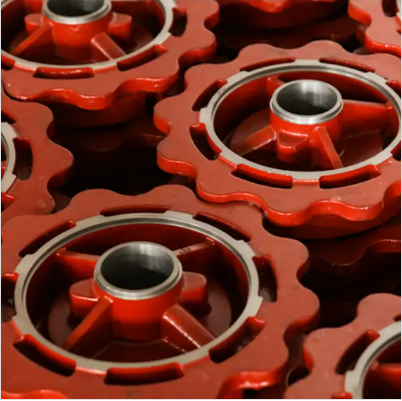Mobile:+86-311-808-126-83
Email:info@ydcastings.com
composite impeller
Understanding Composite Impellers A Breakthrough in Engineering Performance
Composite impellers have emerged as a significant innovation in the field of engineering, particularly in applications requiring high performance and efficiency. The term composite refers to materials made from two or more constituent materials with distinct physical and chemical properties. When these materials are combined, they create a new material that enjoys the advantages of both, leading to enhanced performance characteristics.
One of the key benefits of using composite materials in impeller manufacturing is their lightweight nature. Traditional impellers, often made from metals like aluminum or stainless steel, can be heavy, which not only affects the overall performance of machinery but also increases fuel consumption in transportation applications. Composite impellers, on the other hand, can reduce the weight by up to 50%, resulting in less energy consumption and improved efficiency. This is particularly important in aerospace and automotive industries, where weight reduction directly correlates with fuel economy and emission reductions.
Furthermore, composite materials exhibit excellent resistance to corrosion, which is vital for components like impellers that often operate in harsh environments. They are less susceptible to chemical degradation, ensuring a longer lifespan and reduced maintenance costs. This durability makes composite impellers especially useful in marine applications, where exposure to saltwater can quickly deteriorate traditional metals.
composite impeller

Another significant advantage of composite impellers is their design flexibility
. Composite manufacturing techniques, such as resin transfer molding (RTM) and filament winding, allow for complex geometries and customized designs tailored to specific performance requirements. This capacity for innovation enables engineers to optimize the fluid dynamics of the impeller, leading to improved performance characteristics such as higher efficiency and reduced noise levels.However, the production of composite impellers is not without challenges. The manufacturing process can be more complex and time-consuming compared to traditional metal fabrication. Additionally, the initial cost of composite materials can be higher, although this is often offset by the long-term benefits of reduced energy consumption and lower maintenance costs.
In recent years, advancements in composite technology have led to enhanced mechanical properties, improving the load-bearing capacity and impact resistance of these impellers. Research into new composite materials, such as carbon fiber reinforced polymers (CFRP) and glass fiber reinforced polymers (GFRP), continues to push the boundaries of what is possible in impeller design and application.
In conclusion, composite impellers represent a significant advancement in engineering, combining lightweight construction, corrosion resistance, and design flexibility. These innovations are paving the way for more efficient and sustainable applications across various industries, from aerospace to automotive and beyond. As technology continues to evolve, the adoption of composite materials in impellers is likely to increase, setting new standards for performance and reliability in the years to come. Understanding and leveraging the capabilities of composite impellers will be crucial for businesses aiming to stay competitive in an increasingly eco-conscious market.
-
Why Should You Invest in Superior Pump Castings for Your Equipment?NewsJun.09,2025
-
Unlock Performance Potential with Stainless Impellers and Aluminum End CapsNewsJun.09,2025
-
Revolutionize Your Machinery with Superior Cast Iron and Aluminum ComponentsNewsJun.09,2025
-
Revolutionize Fluid Dynamics with Premium Pump ComponentsNewsJun.09,2025
-
Optimizing Industrial Systems with Essential Valve ComponentsNewsJun.09,2025
-
Elevate Grid Efficiency with High-Precision Power CastingsNewsJun.09,2025











